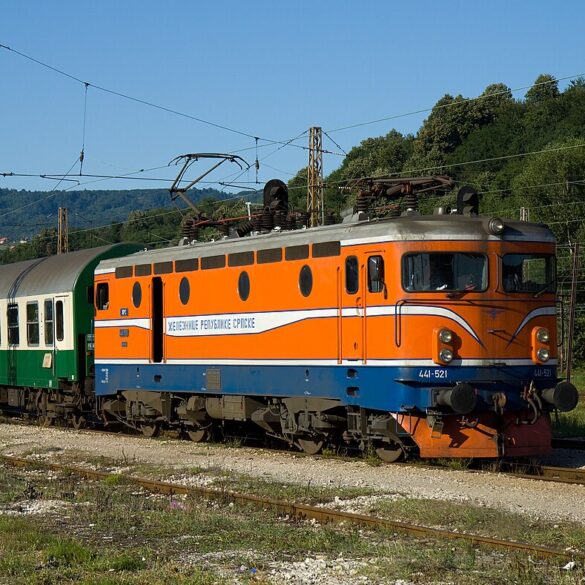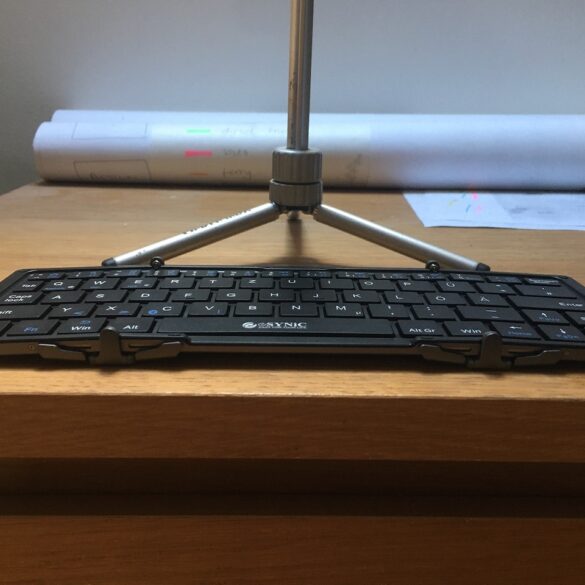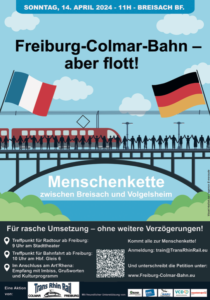 I spent yesterday at the France-Germany border – I started in Freiburg, cycled to the human chain protest at Breisach, and cycled onwards to Colmar in France.
I spent yesterday at the France-Germany border – I started in Freiburg, cycled to the human chain protest at Breisach, and cycled onwards to Colmar in France.
The Association Trans Rhin Rail has been working for twelve years to try to re-open the cross border section of the Freiburg-Colmar line. 800 people came to the the protest, and afterwards heard plenty of speeches from local politicians such as Member of the French National Assembly Brigitte Klinkert and Mayor of Breisach Oliver Rein, all of whom spoke warmly in favour of the reactivation of the line.
Not only is this a transport project they said, but it is a symbol of unity between France and Germany within the EU. And this is a region with massive cross border commuting – there are 250000 people crossing the France-Germany border daily, the vast majority by car.
But behind the scenes no-one really wants to fix this railway line.
The problem here, just as is the case in many border regions, is that one side wants to solve the problem more than the other side does. Here Germany is more keen than France is. And Baden-Württemberg is comparatively rich among Germany’s Bundesländer, while Grand Est on the French side is not replete with money. Neither railway company is super keen either – regional lines like this are exactly the sort of route SNCF has been de-prioritising for years, and while DB Regio would no doubt happily bid to run such a line, it is nevertheless small fry for them too. And as I see it, the line has little or no potential for freight or long distance high speed passenger traffic – the sort of business that tends to motivate rail companies more.

And then there is the project itself. Freiburg-Breisach is at least electrified and has passenger traffic, but the line is overloaded and hence rather unreliable. Volgelsheim-Colmar on the French side remains in place, and is used for freight only, is not electrified, and the tracks in many places are in a desolate state. You would have to re-lay the whole lot of it.

And then there is the bridge. Today’s road bridge is built on the foundations of the old railway bridge, and so you would need to either build a new railway bridge, or put the railway on today’s road bridge and then build a new road bridge. Given the width and complexity of crossing the Rhein at Breisach that is going to be neither simple nor cheap. Politicians at the event yesterday spoke of a budget of €300m for the works, but that looks on the low side to me.
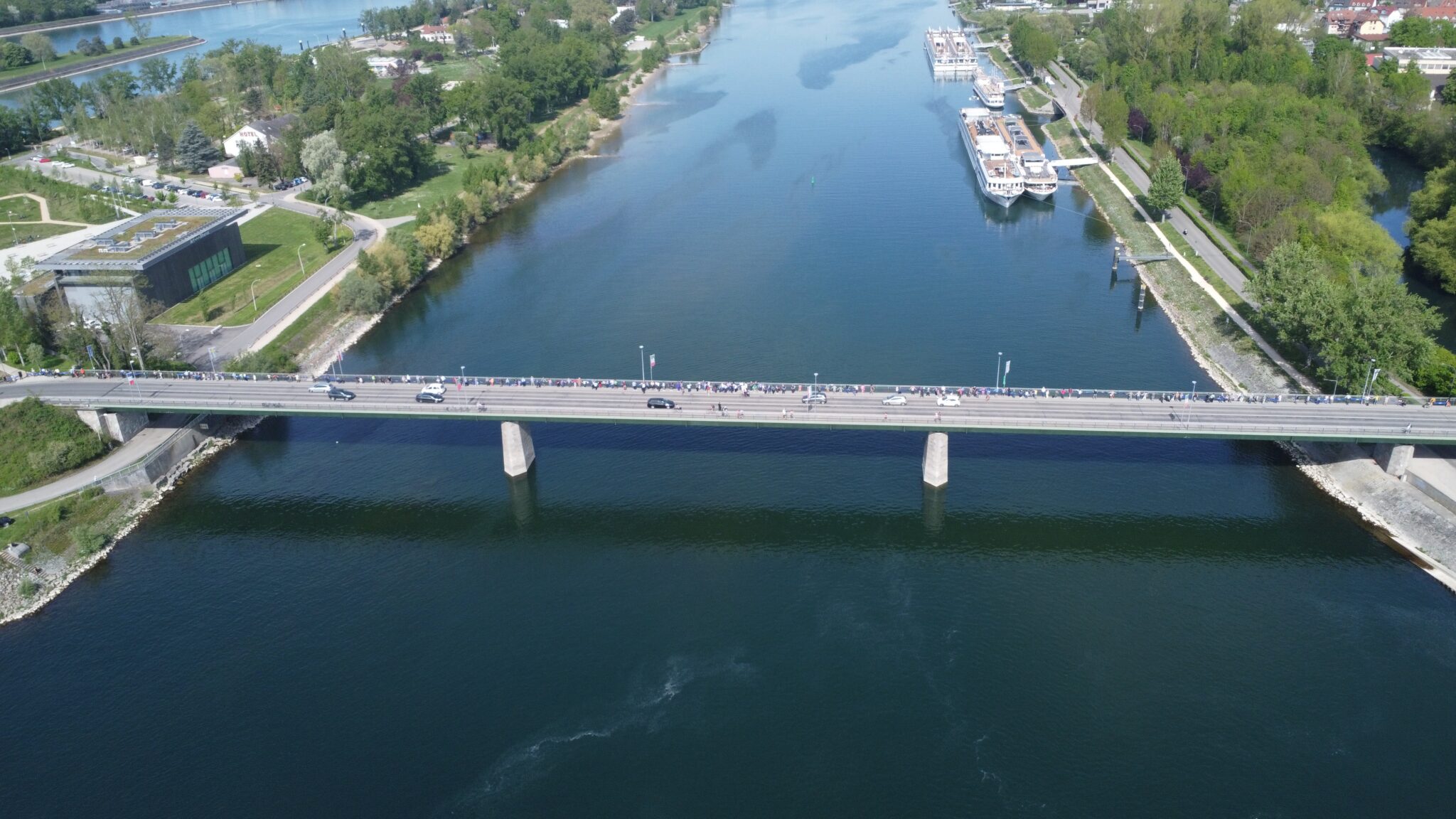
Set that in the context of problematic relations between France and Germany when it comes to cross border public transport, and the picture looks even more bleak.
Just over 25 kilometres south of Breisach there is a railway and road bridge over the Rhein – between Bantzenheim and Neuenburg. Yet here there have been no passenger trains there for 6 months (and none planned before December this year) because this was the first line SNCF and Grand Est decided to cut due to a shortage of drivers (the trains that used to be used here were French ones). And the tickets for the cross border rail replacement bus make no sense either – Mulhouse-Bantzenheim (18km) was €2,30 (because reduction cards are valid), but Mulhouse-Neuenburg (just 4km further, but in Germany) is €6,20 (reductions do not apply to the whole trip – because the destination is in another country).

North of Breisach there are problems too. At least there are trains nearly hourly between Offenburg and Strasbourg, but these are tiny diesel railbuses on an electrified line, and Deutschlandticket is not valid on the final 7km between Kehl (the final station in Germany) and Strasbourg. More about these headaches here. At least there is a tram from Kehl to Strasbourg (Deutschlandticket only valid between the German stations) which is good if you live there, but less handy if you are travelling from afar.
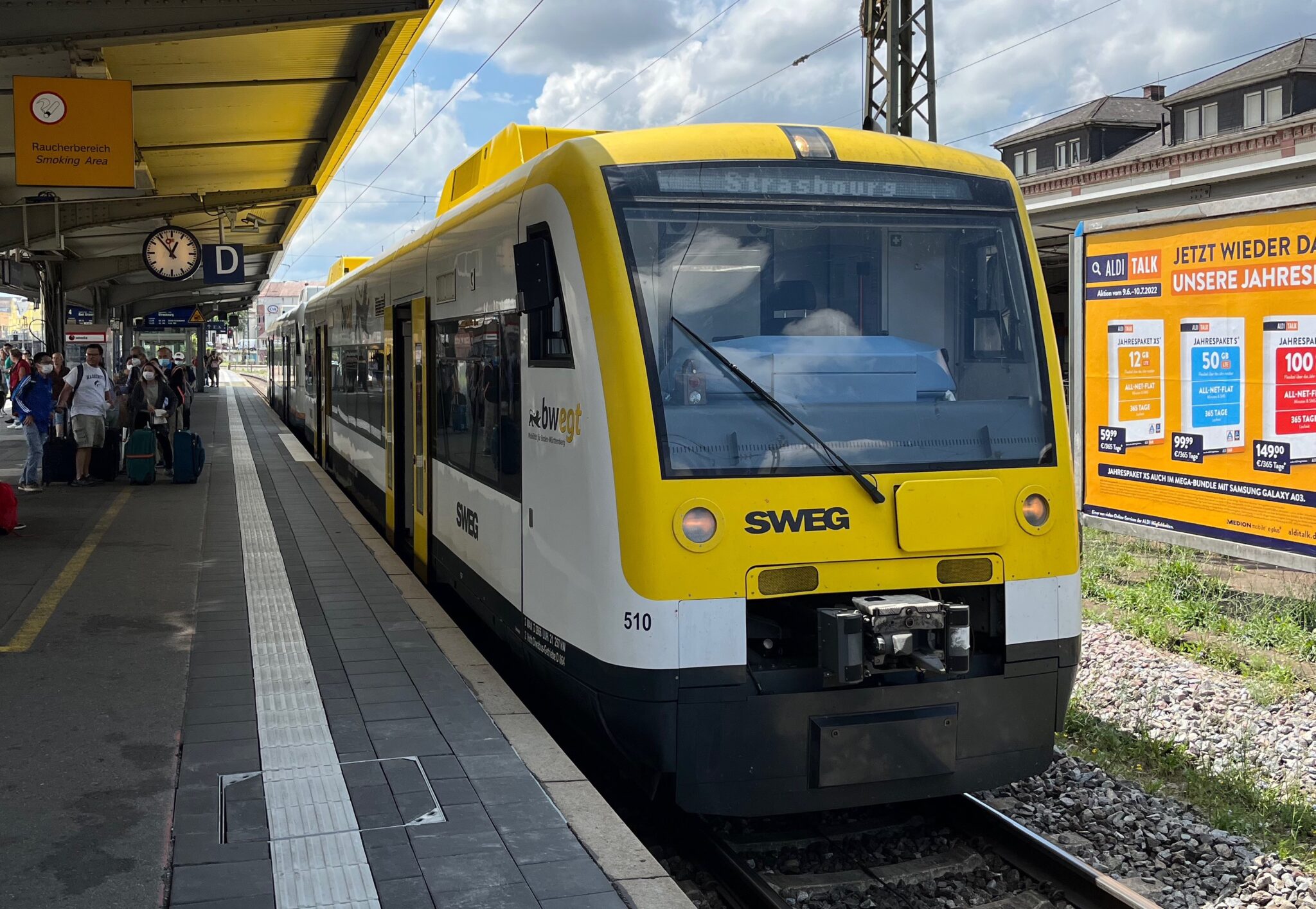
Then there is Rastatt-Wintersdorf, with an intact railway as far as the bridge on both sides, but nothing has crossed the bridge for years – where the rail tracks share the bridge with the road.
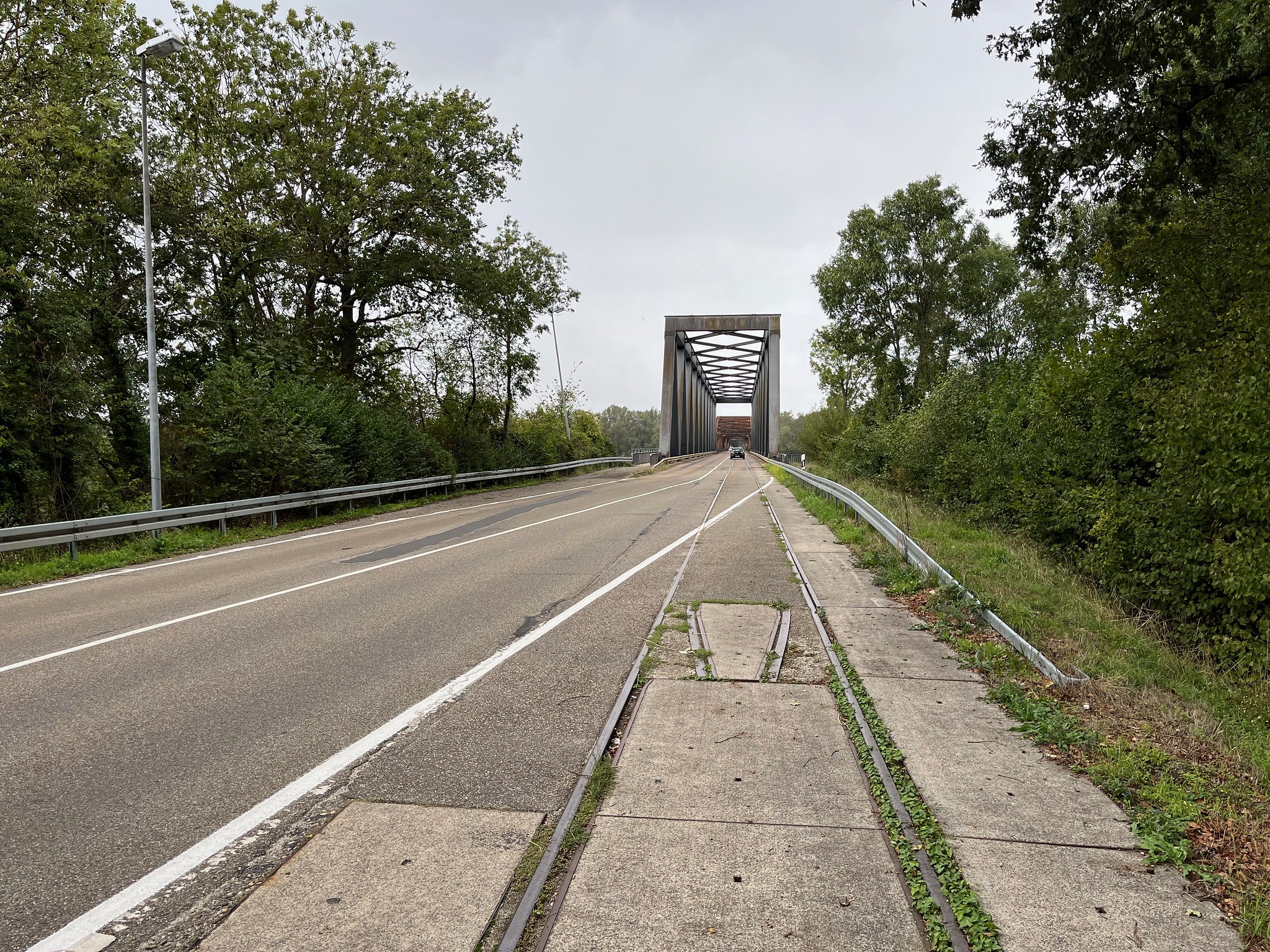
Along the northern edge of Alsace it is slightly better in terms of ticketing – there Rheinland-Pfalz has managed to get Deutschlandticket valid as far as Lauterbourg and Wissembourg. But both lines are only diesel, and on the French side have dilapidated infrastructure and irregular timetables. Especially the route through Lauterbourg would have potential for freight traffic, but the absence of electrification and the single track section German side limits this.

Saarbrücken-Sarreguemines at least has a reasonable tram connection (and Deutschlandticket is valid), but there are very few through trains from Saarbrücken to Strasbourg (where even booking a ticket is a headache – you can order online, but the ticket has to be on paper). Saarbrücken-Forbach is similar to Offenburg-Strasbourg – diesel railbuses on an electrified line. And Dillingen (Saar) – Bouzonville and Perl – Apach have no daily passenger service.
All of these lines are mapped here.
Oh and the trains.
From December 2024 the first new Régiolis tri-system (15kV/25kV/diesel) trains should be available for these cross border routes, replacing the old diesel railbuses. Indeed the first of the trains was already completed in 2021.
But there is a problem. The Länder, German side, wanted a competitive tender to run the trains, while Grand Est wanted to simply grant the contract to SNCF. Currently the discussion is that the new trains will be run on an interim basis from December 2024, before the permanent contract is awarded for 2026, but honestly I am not holding my breath.
So, to put it bluntly, it is all a mess. Missing infrastructure, missing services, timetable problems, ticketing headaches, disputes about operation of the new trains.
But don’t forget, we’re united!
Yes, united in our ability to not get cross border regional rail problems fixed.
